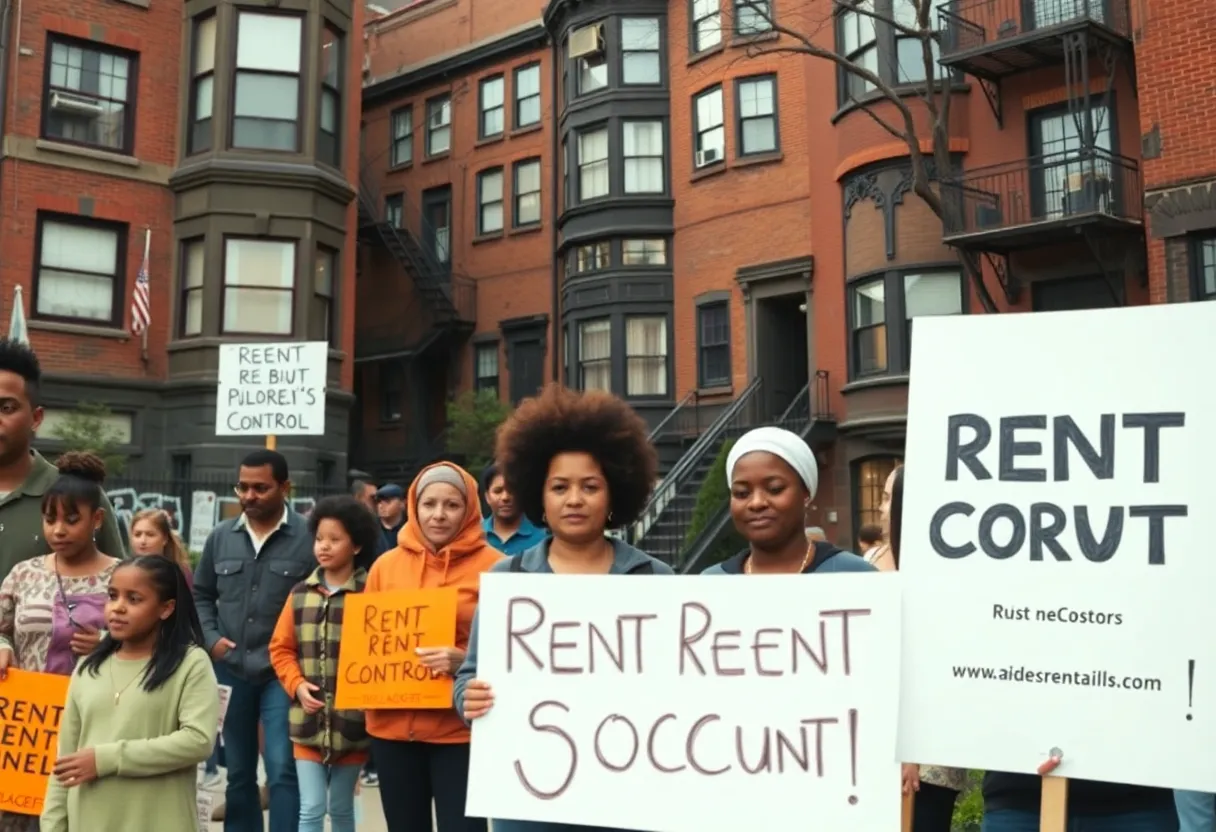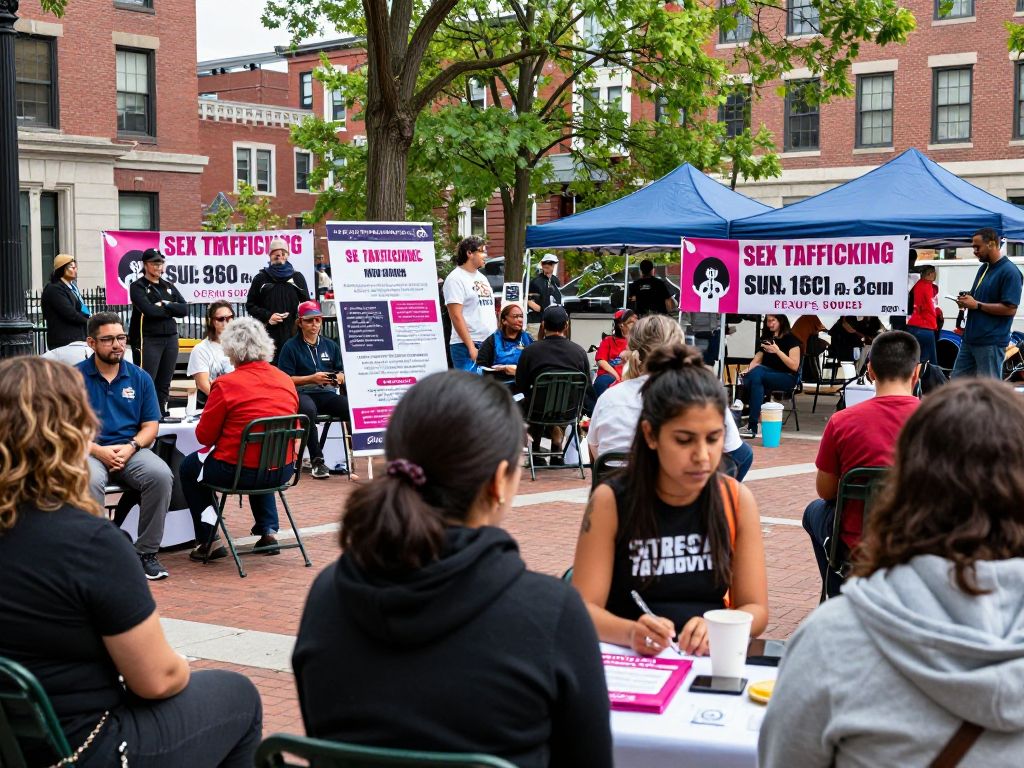Boston, September 12, 2025
News Summary
A proposed ballot measure in Massachusetts that seeks to implement statewide rent control is moving forward after receiving approval from the Attorney General for signature collection. Organizers aim to gather approximately 75,000 signatures to qualify the measure for the 2026 ballot. The measure would limit annual rent increases to 5% or the annual change in the Consumer Price Index, while exempting certain owner-occupied and newly constructed units. Supporters argue it addresses rising rents and housing insecurity, while opponents warn of potential negative impacts on housing supply.
Boston — A statewide rent control ballot measure is advancing toward the 2026 ballot after the Massachusetts Attorney General approved the signature collection process, and organizers must gather about 75,000 signatures to qualify. The proposed measure would limit annual rent increases to 5% or the annual change in the Consumer Price Index (CPI), whichever is lower, while carving out exemptions for some owner-occupied small buildings and newly constructed units.
Key developments
The Attorney General’s procedural approval allows proponents to begin collecting signatures in several cities this weekend, including Springfield, Worcester, Lynn, and Boston. Backers of the measure say the cap is intended to slow rising rents and reduce displacement of renters. The proposal would exempt owner-occupied buildings with four or fewer units and newly constructed buildings during their first ten years.
Campaign organizers face a signature threshold of approximately 75,000 valid voter signatures to place the measure on the ballot. If the required petitions are filed and certified, the measure would appear on the statewide ballot in 2026 for voters to decide.
Political and municipal context
In Boston, city politics have already reflected the measure’s prominence. A resolution supporting the ballot measure was filed in the Boston City Council by Councilor Henry Santana; debate on that resolution was interrupted when one councilor raised an objection that prevented further discussion. Mayor Michelle Wu supports rent control and previously proposed a 2023 plan to exempt Boston from the statewide ban and cap rent increases, but that plan did not advance in the State House.
At the state level, an earlier effort by State Representative Mike Connolly to qualify a ballot initiative to repeal the statewide rent control ban was unable to attract enough legislative support to proceed. The current petition drive represents a renewed, citizen-driven route to pursue change through direct voter decision.
Arguments from supporters and opponents
Supporters, including housing activists and tenant advocates, point to rising rents, growing housing insecurity, and the involvement of large corporate investors in local housing markets as reasons the measure is urgent. Activists organized a rally in Somerville to mobilize support and to highlight reported rent increases by new owners and the pressure those increases place on long-term renters.
Opponents, including many representatives of the real estate industry, argue that rent control can slow new construction, reduce housing supply, and ultimately raise housing costs for renters in the long run. Some city councilors have referenced declines in housing construction in other cities after adopting similar controls as part of their opposition or caution.
Housing market data and broader trends
Boston’s housing market has shown mixed signals in recent years. The city lost an estimated $3 billion in housing wealth over the past year, even though its total housing value increased by about $411 billion since February 2020. Boston remains one of nine U.S. metropolitan areas with housing markets valued over $1 trillion, alongside New York, Los Angeles, San Francisco, Washington, D.C., Miami, Chicago, Seattle, and San Diego.
Recent analysis from housing researchers indicates that growth in smaller housing markets may drive future gains in national housing wealth. The nine major metros combined had an aggregate decline in value over the last year that was partly offset by strong gains in New York.
Where the proposal stands and next steps
With the Attorney General’s approval to collect signatures, the campaign can proceed with public petitioning efforts in planned cities and neighborhoods. The next formal milestones will be the collection and submission of the required signatures to state election officials, the verification of those signatures, and the final placement of the question on the 2026 ballot if certification is successful.
Background
The current effort follows a long-standing statewide ban on rent control that Massachusetts voters approved in 1994. That vote effectively prohibited local rent regulation across the state. Some supporters of the new measure say local sentiment has shifted since 1994 and argue that regional housing conditions and affordability challenges have made rent regulation necessary to protect tenants. Other policymakers and housing experts remain concerned about potential supply-side impacts and the broader economic effects of statewide rent limits.
The debate over rent control in Massachusetts thus combines immediate concerns about affordability and displacement with longer-term questions about housing supply, development incentives, and how best to balance the needs of renters and property owners.
How people can follow or take part
Organizers are launching signature drives in multiple cities and are encouraging residents to watch for local petition stations and public events. Those interested in either supporting or opposing the measure can seek information about petitioning rules, signature validity requirements, and local civic forums where the issue will be discussed as the ballot process proceeds.
FAQ
What would the proposed rent control measure do?
The measure would cap annual rent increases at either 5% or the year-over-year Consumer Price Index increase, whichever is lower, with exemptions for owner-occupied buildings of four or fewer units and for newly constructed buildings during their first ten years.
How many signatures are needed to get the measure on the ballot?
Proponents must gather approximately 75,000 valid voter signatures to qualify the measure for the 2026 statewide ballot.
Who approved the signature collection process?
The Massachusetts Attorney General approved the procedural language and format required for signature collection, allowing organizers to begin gathering petitions.
Where are petition drives starting?
Organizers plan to begin petition drives in Springfield, Worcester, Lynn, and Boston, with additional public events likely to follow as the campaign expands.
What are the main arguments for and against the measure?
Supporters cite rising rents, displacement, and corporate investment in housing as reasons to limit increases. Opponents warn that rent control can reduce new construction, shrink housing supply, and lead to higher long-term costs for renters.
Quick reference table
| Topic | Details |
|---|---|
| Ballot year | 2026 (if signatures are collected and certified) |
| Annual rent cap proposed | 5% or annual CPI increase, whichever is lower |
| Exemptions | Owner-occupied buildings with four or fewer units; newly constructed buildings for first ten years |
| Signatures required | Approximately 75,000 valid voter signatures |
| Initial petition launch cities | Springfield, Worcester, Lynn, Boston |
| Key local supporters | Tenant advocates, housing activists, some city officials |
| Key opponents | Many real estate industry representatives and some policymakers citing construction concerns |
| Recent housing data (Boston) | Estimated $3 billion loss in housing wealth last year; overall increase of $411 billion since Feb 2020 |
Deeper Dive: News & Info About This Topic
HERE Resources
Massachusetts Sees Decline in Medical Cannabis Sales
Massachusetts Initiative Aims to Repeal Cannabis Legalization
Massachusetts Rent Control Initiative Gains Momentum
Boston Mayoral Candidates Discuss Key Issues Ahead of Election
Boston Mayoral Election 2025: Candidates and Key Issues
Massachusetts Faces Legal Challenge Over Rent Control Proposal
Will Onuoha Promises Transformative Housing and Education Solutions
Boston Chamber CEO Opposes Rent Control Proposal
Boston Elections Department Faces Ballot Error Ahead of Elections
Massachusetts Approves Major Overhaul of Cannabis Oversight
Additional Resources
- Boston.com: Boston City Council Shows Mixed Support for Rent Control Ballot Question
- Wikipedia: Rent Control
- Axios: Massachusetts Rent Control Ballot
- Google Search: Rent Control Boston
- Boston 25 News: Signatures Collected at Somerville Rally for Rent Control
- Encyclopedia Britannica: Rent Control
- Boston Globe: Opinion on Boston Rent Control
- Google News: Boston Rent Control
- NBC Boston: Rent Control Supporters Rally in Somerville
- MassLive: Rent Control Debate in Massachusetts

Author: STAFF HERE BOSTON WRITER
The BOSTON STAFF WRITER represents the experienced team at HEREBoston.com, your go-to source for actionable local news and information in Boston, Suffolk County, and beyond. Specializing in "news you can use," we cover essential topics like product reviews for personal and business needs, local business directories, politics, real estate trends, neighborhood insights, and state news affecting the area—with deep expertise drawn from years of dedicated reporting and strong community input, including local press releases and business updates. We deliver top reporting on high-value events such as Boston Marathon, Head of the Charles Regatta, and Boston Harborfest. Our coverage extends to key organizations like the Greater Boston Chamber of Commerce and Associated Industries of Massachusetts, plus leading businesses in finance, biotech, and insurance that power the local economy such as Fidelity Investments, Biogen, and Liberty Mutual Insurance. As part of the broader HERE network, we provide comprehensive, credible insights into Massachusetts's dynamic landscape.





